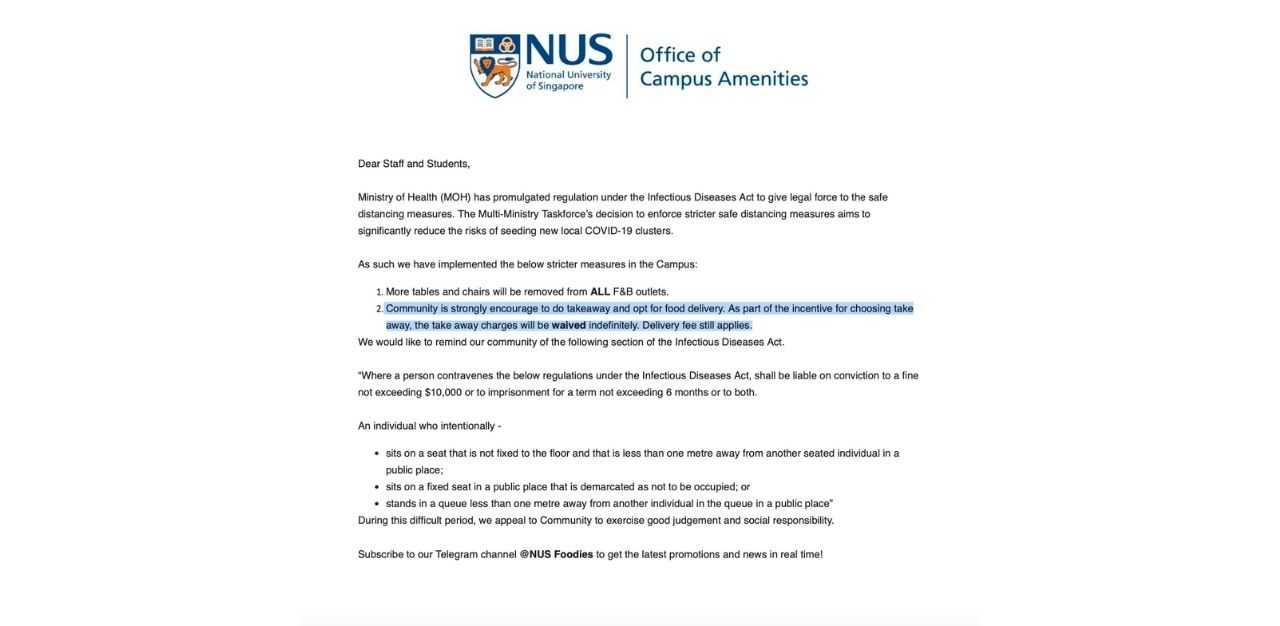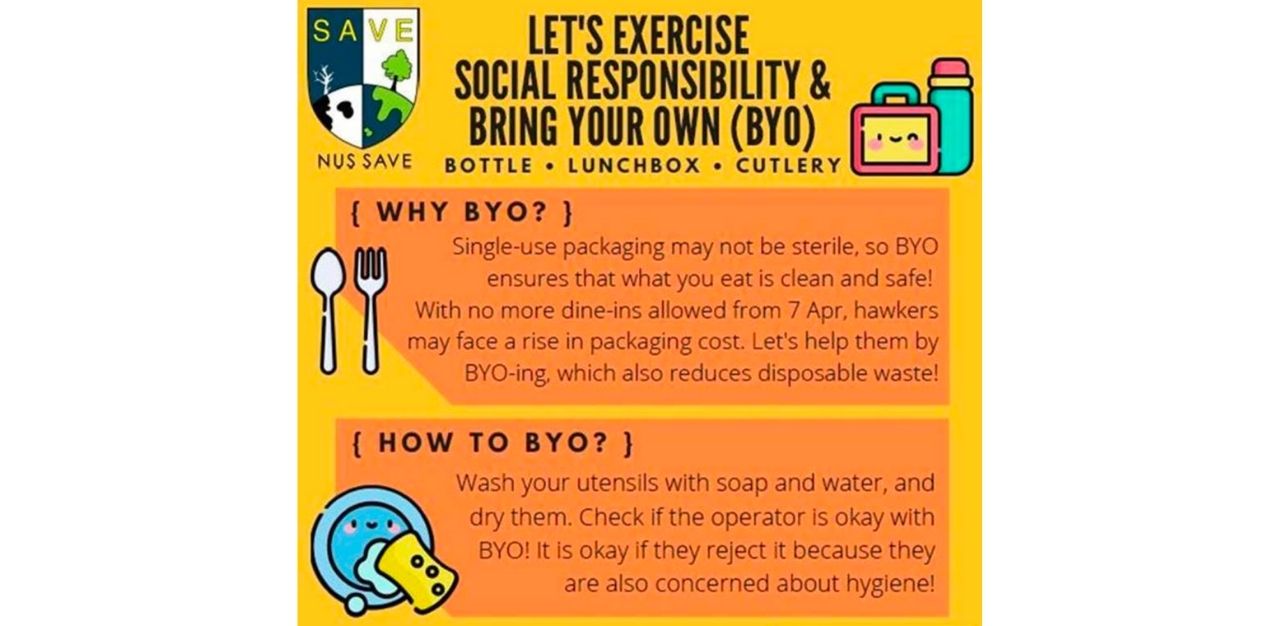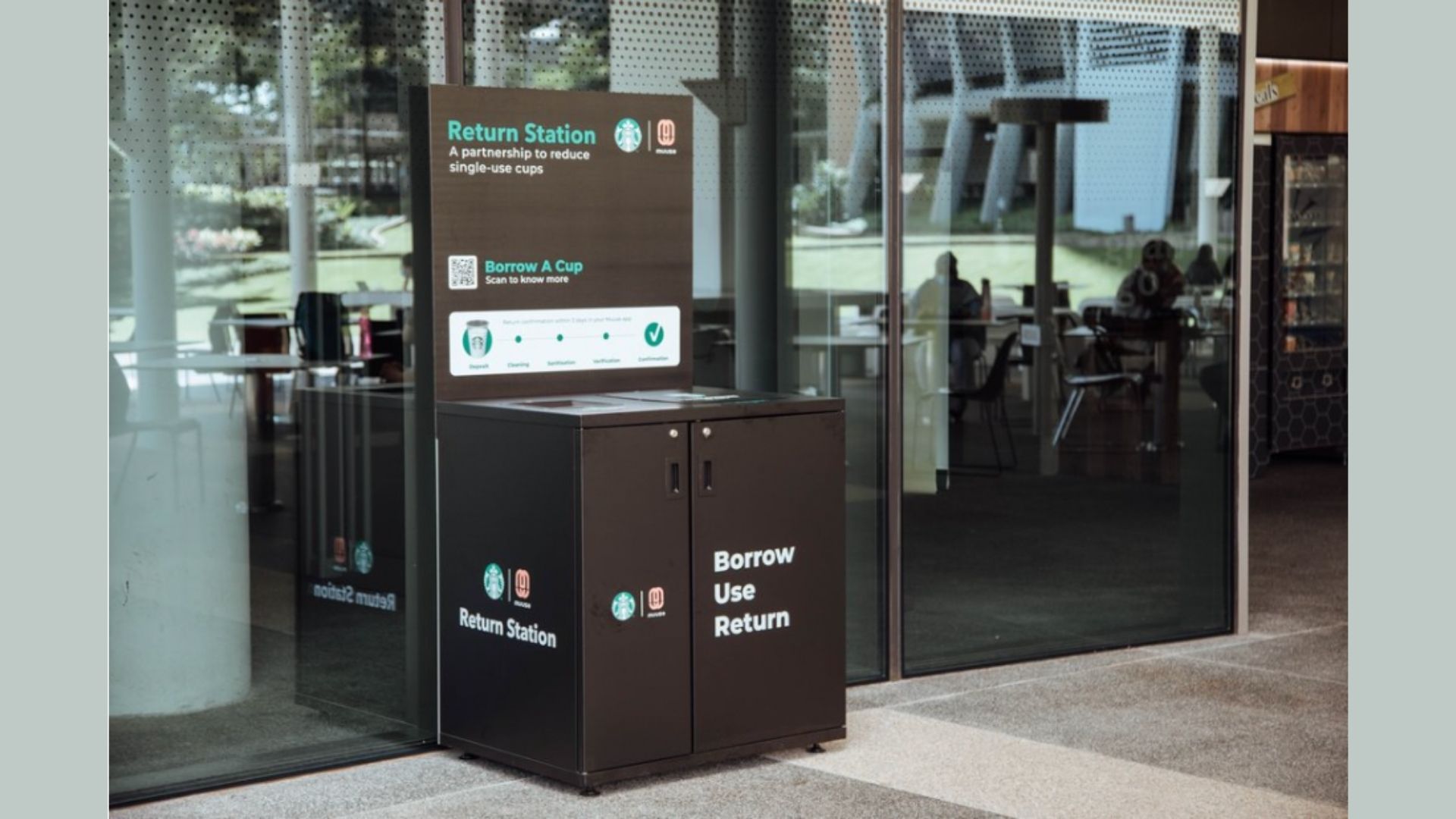On 10 January, Starbucks on campus announced the launch of its Borrow A Cup Programme.
Its customers at all three outlets across the National University of Singapore (NUS) can borrow reusable plastic cups and return them later.
Those who buy a drink with reusable cups, whether their own or borrowed, will enjoy 50 cents off from their cuppa. This project runs till May 2022.
This program is launched in collaboration with Singapore-based startup Muuse, which works with F&B outlets to create well-integrated systems for reusables islandwide.
Muuse professionally cleans and sanitises reusable cups that have been deposited into the return stations positioned outside each of the outlets.
The NUS Students Against Violation of the Earth (SAVE) had previously launched the similar Project Box & Project Tumbler (PBPT), which allowed students to gain discounts after participating in the Bring-Your-Own (BYO) campaign five times in a row.
Such initiatives came to a standstill when the Covid-19 virus hit the country in January 2020 and concerns over hygiene and logistics rose.
Takeaways and food deliveries were strongly encouraged in light of safe distancing measures, and the Office of Campus Amenities (OCA) waived previously instated charges for takeaway orders indefinitely.

BYO containers were still encouraged on paper, but a number of vendors had rejected them out of fear that reusable containers were carriers of the virus.

Similarly, Starbucks — one of the biggest producers of single-use cups in the world — also banned the use of personal reusable cups in March 2020 worldwide.
While these sentiments were understandable, environmentalists voiced their concerns over the increased use of disposables and plastic waste during this time. Ms Woo Qiyun, who runs the environmental communications Instagram page @theweirdandwild, addressed some key concerns during the peak.
“According to the LA Times, medical experts believe that reusable projects pose no additional risks as long as they are routinely sanitised,” she wrote in an older post.
Associate Professor Hassan Vally told the Conversation, a network of not-for-profit media outlets publishing news stories and research reports online, with accompanying expert opinion and analysis, that “this isn’t to say surface transmission isn’t possible and it doesn’t pose a risk in certain situations, or that we should disregard it completely. But, we should acknowledge the threat surface transmission poses is relatively small”.
Small, that is — especially in light of another crisis on hand: the climate crisis. In 2020, Singapore’s domestic recycling rate decreased from 17 percent to 13 percent — with the halt in the community recycling programmes cited as the main reason.
Programmes such as the cash-for-trash scheme and collection drives led by schools and Residents’ Committee centres were also halted, resulting in less paper and plastic recyclables collected, reported mothership.
When sustainability is viewed as an elective during times of immediate crisis, it’s equivalent to turning off a burning stove but missing a candle flame slowly engulfing a curtain in the very next room.
Two years into the Covid-19 pandemic, with a vaccination rate of 88 percent as of 29 January 2022, reusables are finally making a systemic comeback — and that is a win worth celebrating.
Join the conversations on TheHomeGround Asia’s Facebook and Instagram, and get the latest updates via Telegram.




























